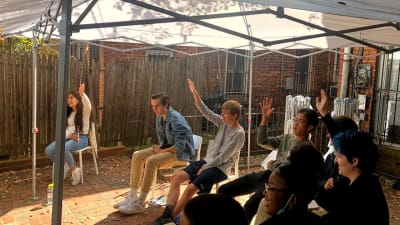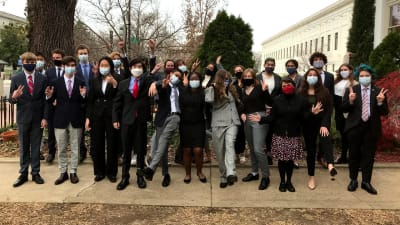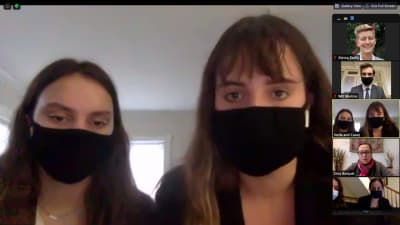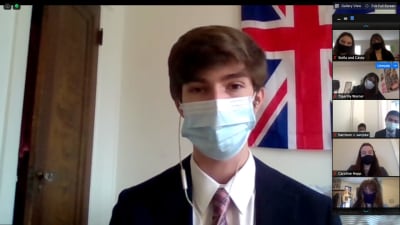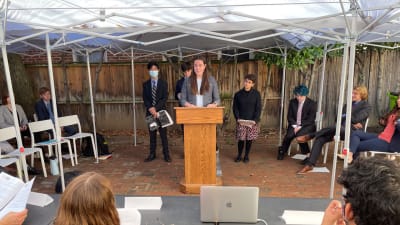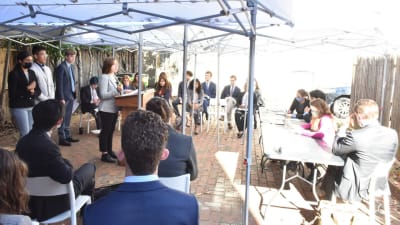Fall 2020 presents capstone at Mexican Embassy, leading think tank
How do you learn to testify before Congress? Argue before the Supreme Court? Defend your PhD thesis? The answer? Come to SEGL and complete the capstone collaborative policy document experience!
The collaborative policy document (or “CPD,” as our students call it) is arguably SEGL’s most difficult academic challenge. Each SEGL cohort must select a current international crisis, research that crisis and collaboratively craft a 40-page scholarly document which is then presented and defended in front of real-world policymakers.
This semester chose Mexican drug cartels as its topic.
After this decision, the students split into six sub-groups, each with a different area of expertise. They then spent a (virtual) morning in the George Washington University main library, with full access to the University’s resources. David Ettinger (the top international relations/political science research librarian at GW), who has been a student favorite since our first semester, started with an entertaining orientation session so that the students know how to use the myriad databases in the GW system (this is also good preparation for undergraduate life!), and then the students were off to research.
The groups investigated its chosen topic and drafted dozens of policy recommendations. The research process also involves reaching out to experts for phone interviews. (This requires ingenuity and a bit of courage and often leads to excitement and insight.) The students also spent a morning presenting and defending preliminary research before a faculty mock panel of experts–the notorious “Review Panel”–each of whom asked questions as stridently as a Member of Congress, Supreme Court Justice, or dissertation committee member might. (Ask a student for the Panel’s unofficial name!)
After compiling their research for several days, the students created rough drafts that our faculty critiqued. Students discuss, disagree, research, and revise, and then it is time for the final presentations. Each semester we try to meet with on-the-ground policymakers who have the ability to incorporate our students’ ideas into actual policy.
This fall we visited with two experts. Our first presentation was before Georgina Barquet, Head of Border and Special Affairs at the Mexican Embassy Barquet’s diplomatic, incisive questions pushed our students, and her review was both positive and forward-looking. (Indeed, she said in all her time at the Embassy this was the first time a student group had asked for such a meeting, and noted how valuable it was to the Embassy to hear their perspective and ideas.)
Our second presentation was to Maureen Meyer, the Vice President for Programs and Director for Mexico and Migrant Rights at the Washington Office on Latin America, one of the country’s leading think tanks addressing human rights in Latin America. Meyer provided collegial, honest feedback and noted how impressed she was with the quality of the conversation and level of student questions.
The students afterwards were satisfied and relieved (you can see that satisfaction and relief, through masks, in the photos!). They had researched and prepared well enough to engage in meaningful conversations about a complex current issue with experts. A wonderful accomplishment!
Want to read the document? Download it here!
